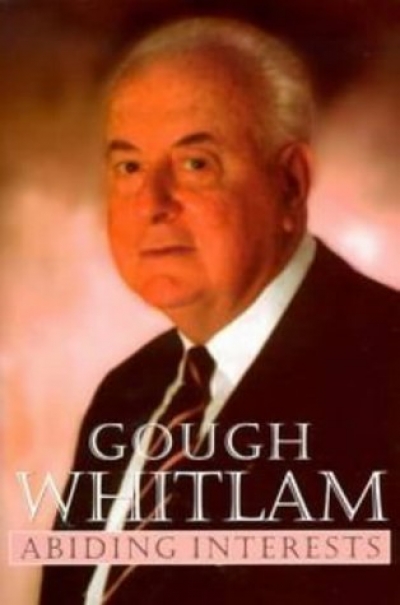Australian Politics
To Constitute a Nation: A cultural history of Australia’s constitution by Helen Irving
Remarkably to some, this cultural history of the drafting of the Australian constitution is an exciting and triumphant book. Helen Irving manages to fill in adroitly the blank pages of our constitution as a cultural artefact and to celebrate the complicated processes whereby Australia became a nation on the first day of the new century.
To actually write the framework for a nation by agreement indeed represents a concentrated act of the imagination. Moreover, it demonstrated, in the closing years of the nineteenth century, a profound optimism in this country’s future. As Irving rightly argues, the nation of Australia itself was the product not of external pressure or crisis, nor due to any religious or ethnic imperatives, but was created in a time of peace. This achievement, and the codification of our national powers and institutions, despite their obvious limitations, rightly deserves celebration.
... (read more)Hayden: An autobiography is a fine book – one of the best political memoirs written by an Australian. It’s also a valuable historical work by a former politician who, thank God, doesn’t take himself too seriously.
Bill Hayden clearly made good use of his time as governor–general (1989–96) to undertake extensive research. In the acknowledgments section, the author gives generous thanks to librarians and archivists who assisted his endeavours. But it is clear that much of the detailed work was undertaken by Hayden himself.
... (read more)The Empire Fractures: Anglo-Australian Conflict in the 1940s by Christopher Waters
The central contention of this provocative, well-written, and extensively researched study is that Australia underwent a process of decolonisation during the 1940s, and that only by understanding this can we make sense of the subsequent relationships between Australia, Britain and the United States.
... (read more)A Radical Tory: Garfield Berwick’s reflections and recollections by Garfield Barwick
The intellectual and other cultural divides between New South Wales and Victoria that emerged in the second half of the nineteenth century are among the most intriguing features of Australian history. Evidence of their continuing influence on law and politics in more recent times provide the most significant aspect of this autobiography by Sir Garfield Barwick.
... (read more)'Red Ted': The Life of E.G. Theodore by Ross Fitzgerald
On the day of the last Federal election, I became engaged in an unlikely conversation with a helper for the ‘Call-to-Australia’ cause at my local polling booth. When I revealed that I had recently completed a research project on Dr H.V. Evatt, my elderly companion asserted that Evatt should not be hailed as the hero of the labour movement. Australia’s greatest politician, this former member of the Australian Labor Party informed me, was ‘Edward Granville Theodore’.
... (read more)Part guru, part factoid, Gough Whitlam shows every sign of enjoying his retirement from politics. Thanks primarily to Sir John Kerr, Sir Garfield Barwick, and Sir Anthony Mason. And of course, Malcolm Fraser.
... (read more)Doc Evatt: Patriot, Internationalist, Fighter and Scholar by Ken Buckley, Barbara Dale and Wayne Reynolds
In his foreword to Doc Evatt, Jim Hagan claims that this is the fourth full-length biography of Dr. H.V. Evatt and suggests that only one other Australian politician has scored as many. Leaving aside the fact that Allan Dalziel never pretended that his book, Evatt the Enigma, was anything more than a profile of the man he worked with for twenty years, these assertions create the misleading impression that a substantial body of literature on Evatt exists. Academics have long lamented the lack of a comprehensive and scholarly biography of one of Australia’s most important and complex judicial and political figures. The very recent appearance of Peter Crockett’s Evatt: A life, characterised by wide-ranging research but a crude psychoanalytical approach, chronic disorganisation, a weakness in the analysis of international affairs, and a lack of historical perspective, disappointed in many ways.
... (read more)In October 1993 I picked up a copy of Window, the ‘Weekly Hong Kong Newsmagazine with Exclusive Coverage of China’ and found in the Business and Finance section a Profile, ‘Bob Hawke’s Eagle Eye in Asia’. There was a photograph of the Eagle, who described himself as a ‘business commentator and facilitator of increased enmeshment in Asia’. This was certainly a confident label. Reading on I discovered that Hawke saw himself as ‘overwhelmingly responsible for the vision of Australia as part of Asia’. He told the reporter than in his first days as Prime Minister he had used the phrase, ‘our future lies in enmeshment with Asia’, a sentiment that was at first greeted sceptically, but now, Hawke claimed, ‘no one questions the wisdom and correctness of Hawke’s vision. No one.’ Emphatic stuff, claiming sole credit for long term shifts in opinion and cultural practice, while dismissing the doubters. If that was all there was to my theme, this would be a very brief history indeed.
... (read more)Prime Ministers’ Wives by Diane Langmore & Suffrage to Sufferance by Janine Haines
Diane Langmore has given us a fascinating account of the lives of ten women, from Pattie Deakin to Hazel Hawke. She has explored the background of each, the attraction which ended in marriage to a politically ambitious man, and the adaptation of each to her husband’s obsessive struggle for the most powerful political post in Australia. Her analysis of the women’s relationship to their partners throws light on the personalities and attitudes of the men chosen by Australians to lead the nation. For the early sketches Langmore has drawn on diaries, newspaper reports, and the opinions of contemporaries; for the latter she has been able to add to her sources the opinions and musings, given in interviews, of the women themselves. Langmore writes with clarity and style, never belittling or patronising her subjects, and her sympathetic viewpoint enables the reader to appreciate the varied personalities of her subjects. She does not, however, fall into the trap of assuming that the public face of each woman is always the private one.
... (read more)Ross Fitzgerald reviews 'Billy Snedden: An unlikely Liberal' by Billy Mackie Snedden and M. Bernie Schedvin
Neither a conventional biography nor an autobiography, Billy Snedden is a story told in two quite distinct and authentic voices. There is that of the late Sir Billy Snedden, Liberal Party leader from 1972 to 1975, and Dr Bernie Schedvin, lecturer in politics at La Trobe University.
... (read more)









